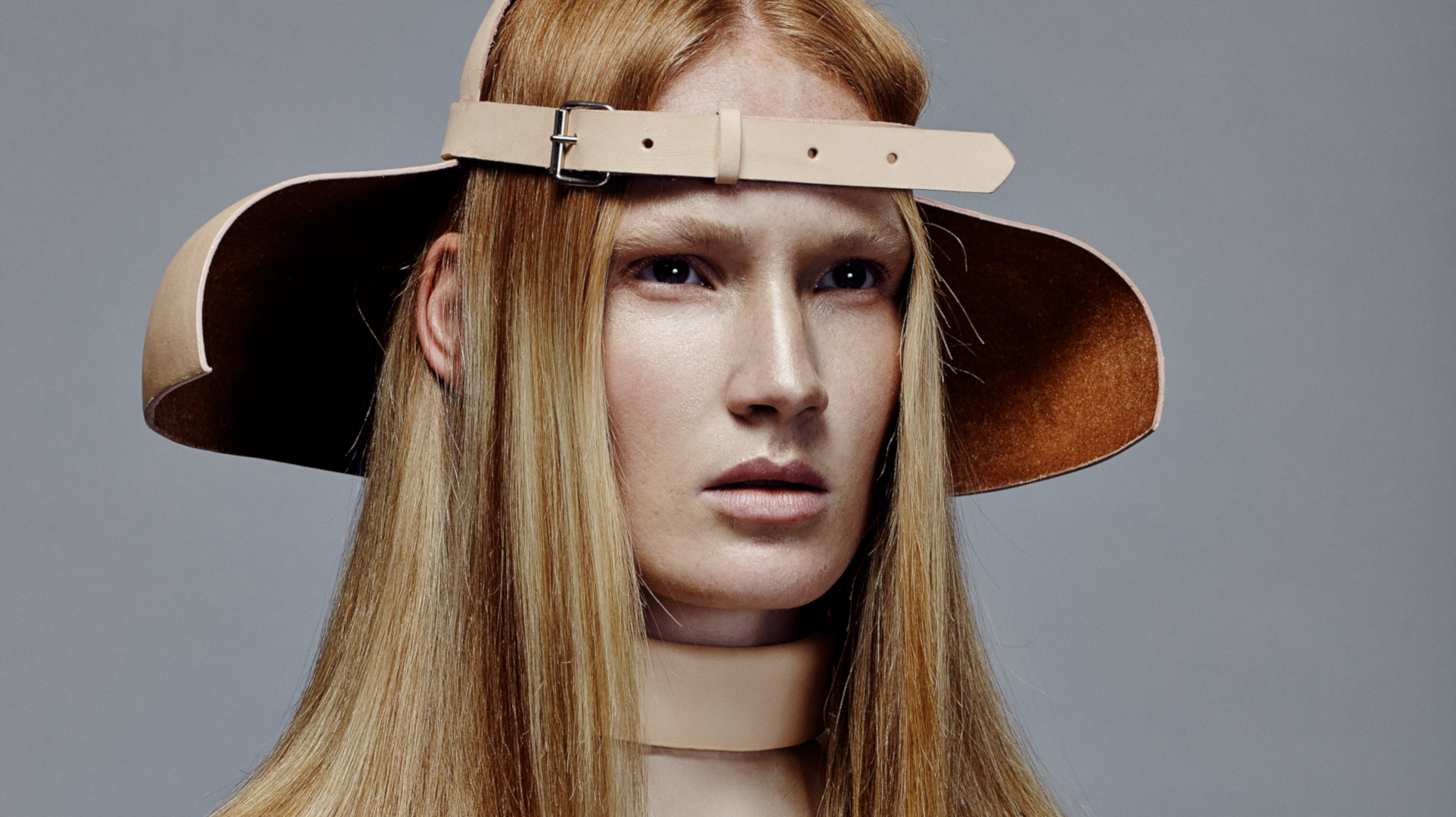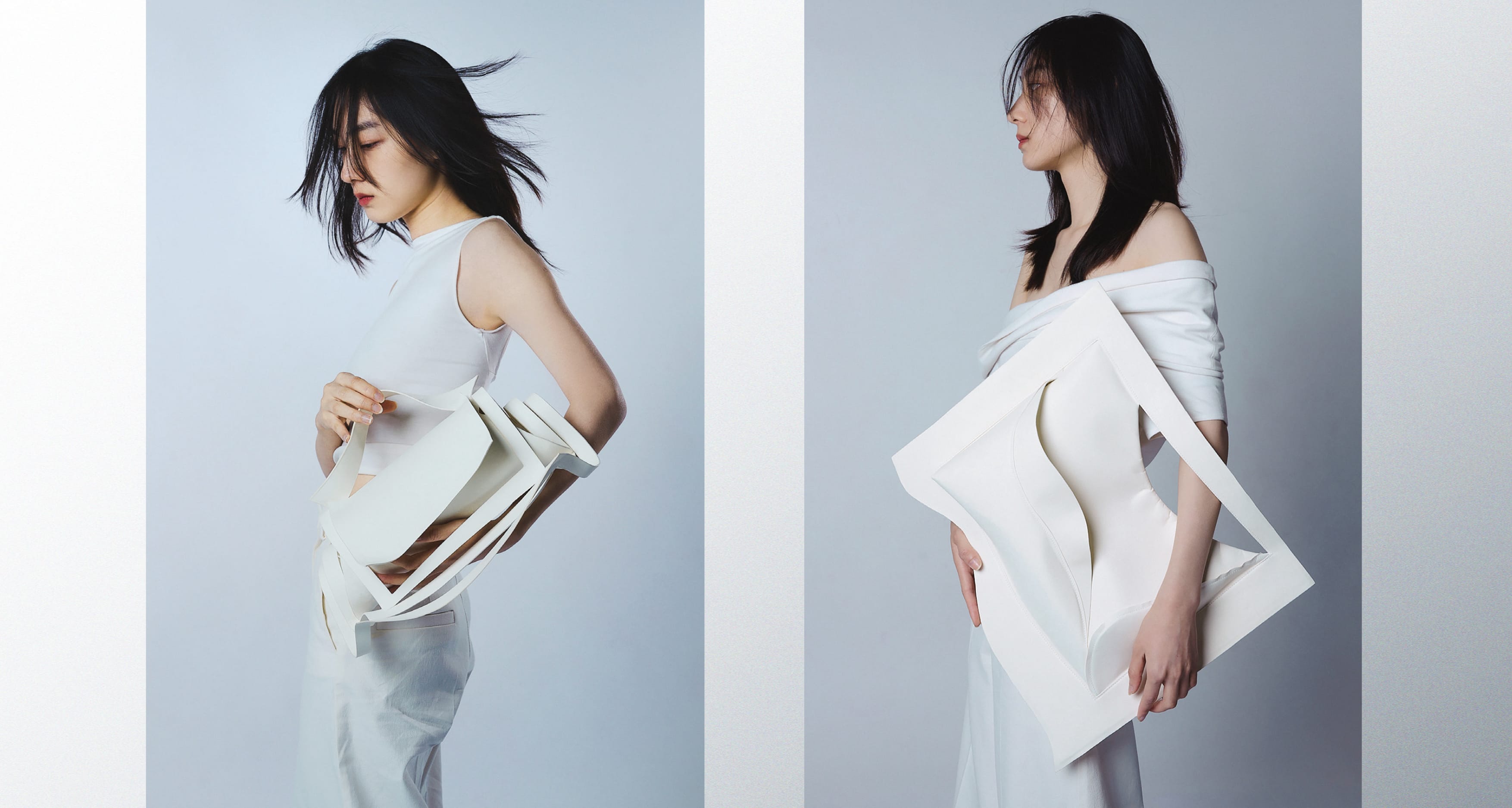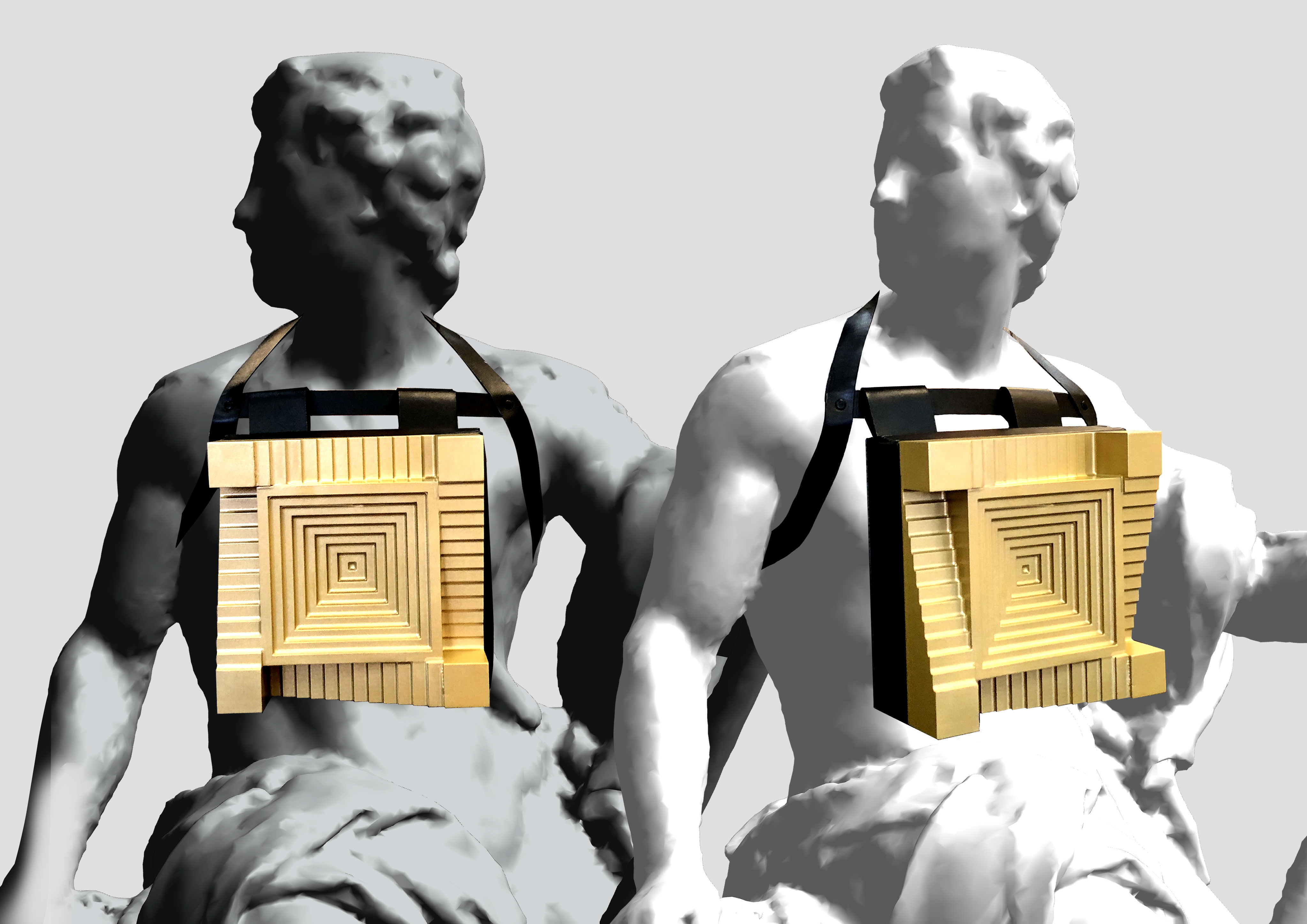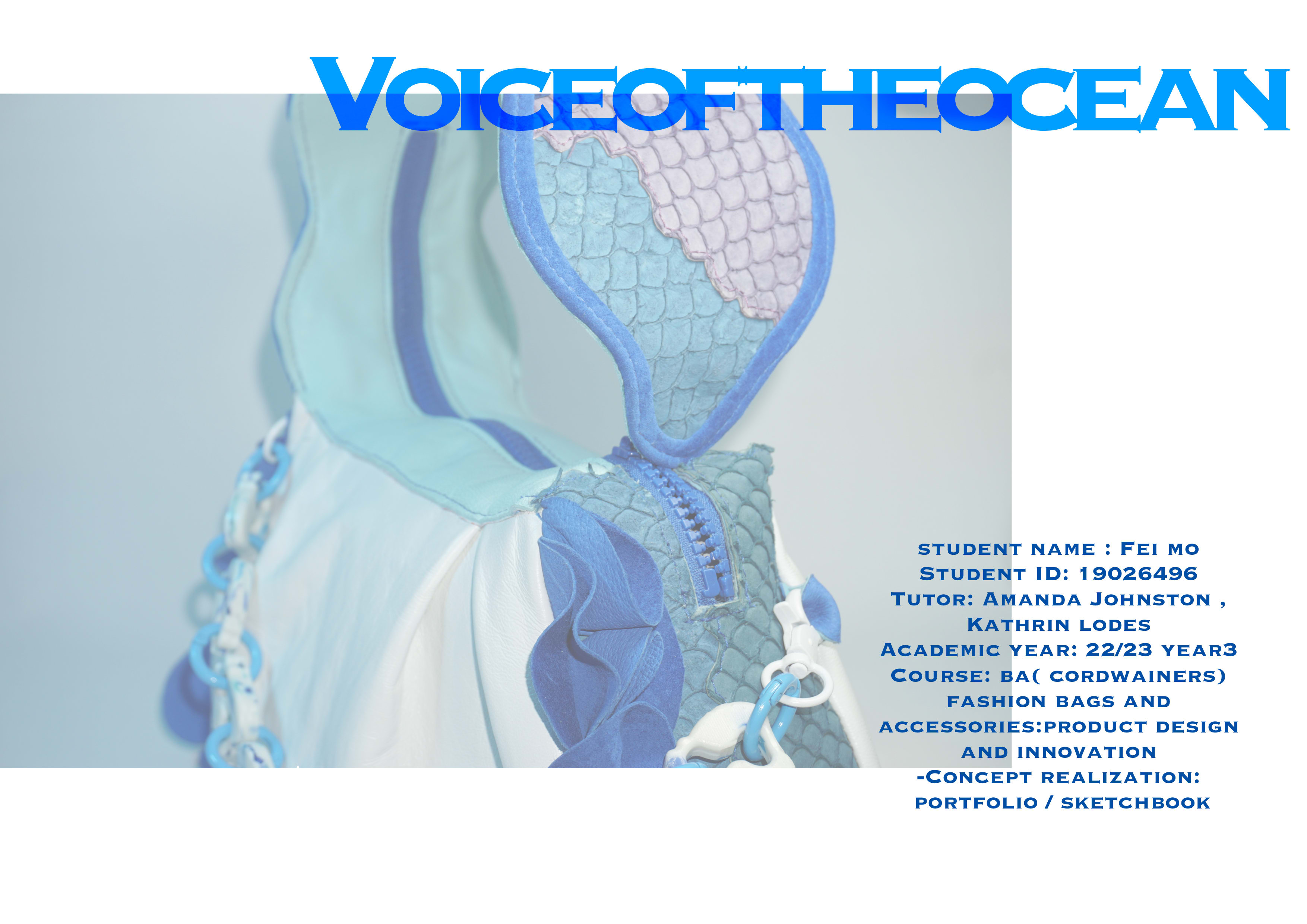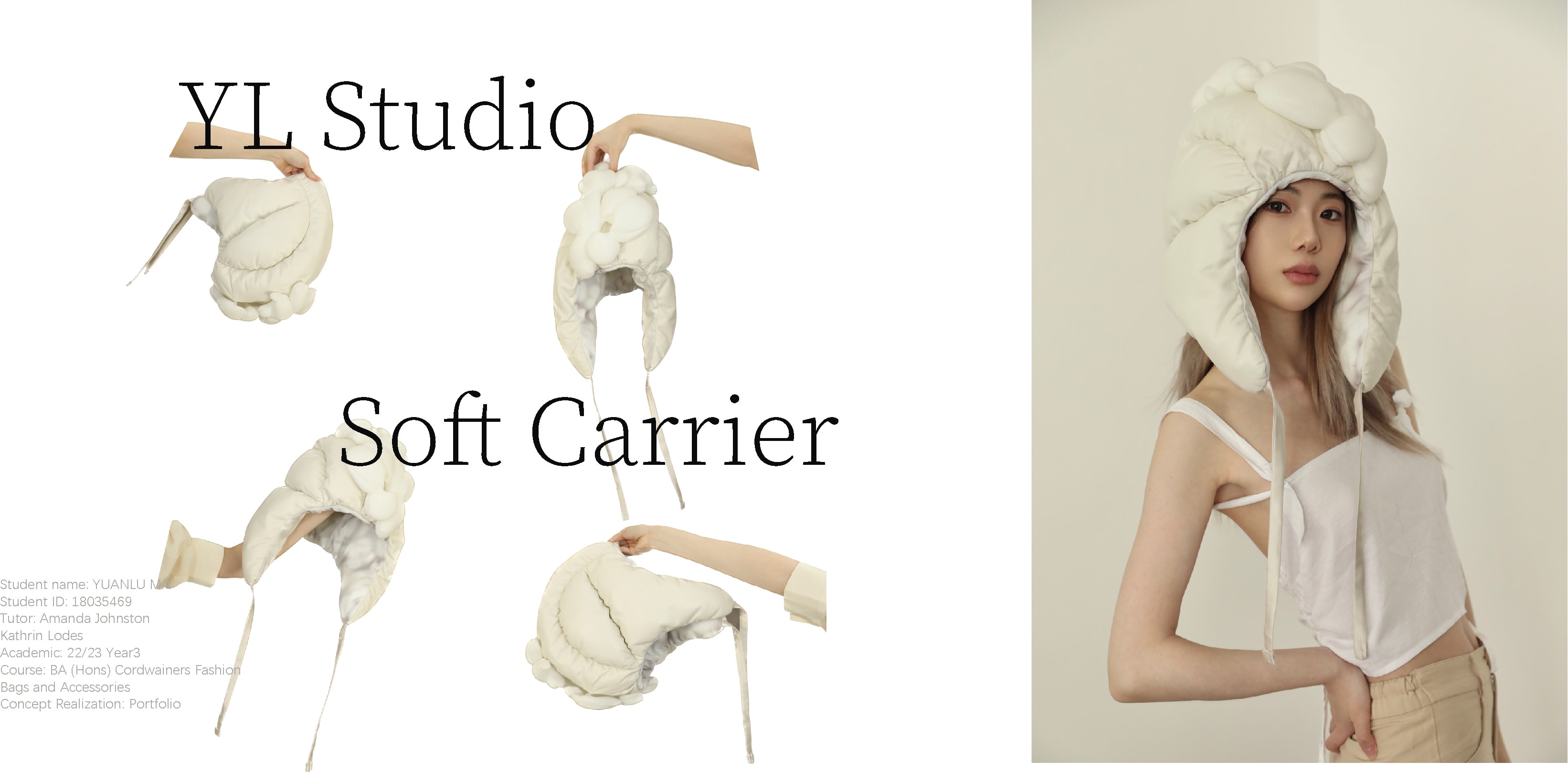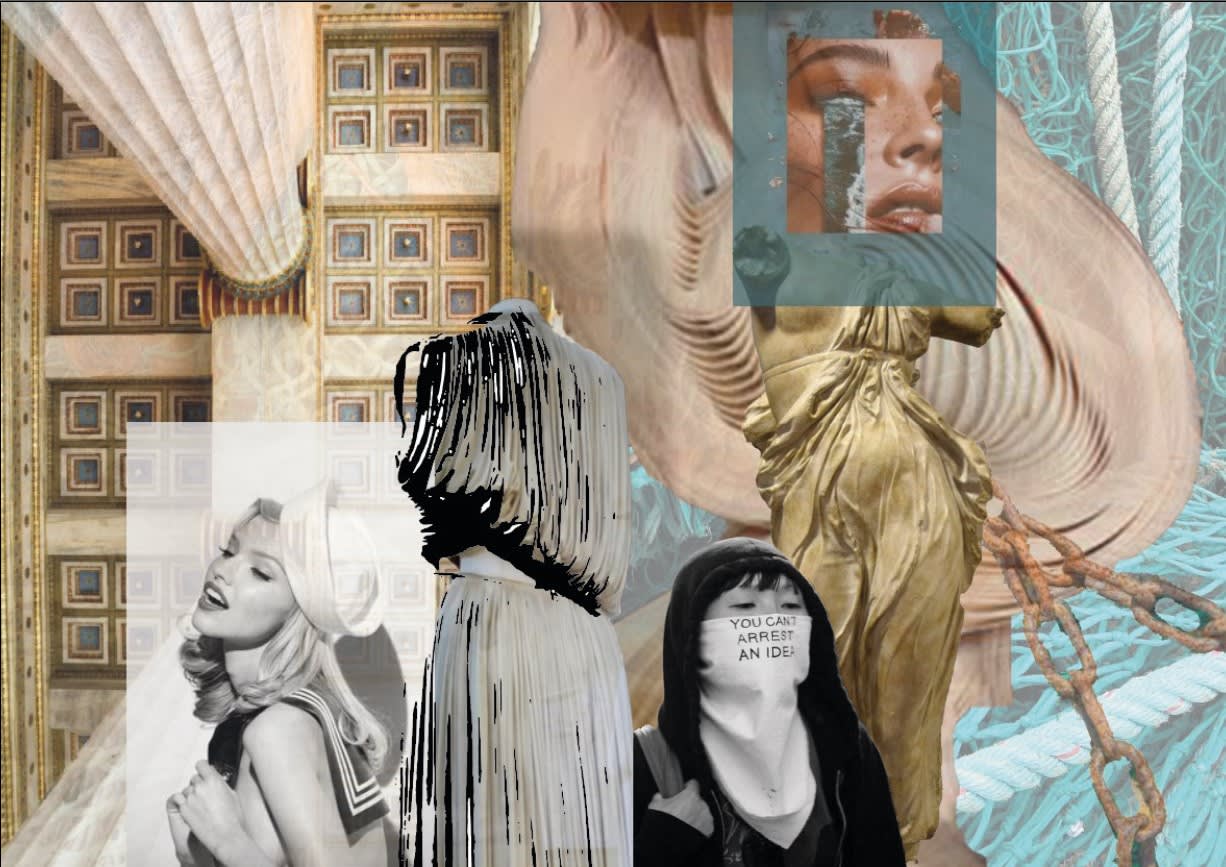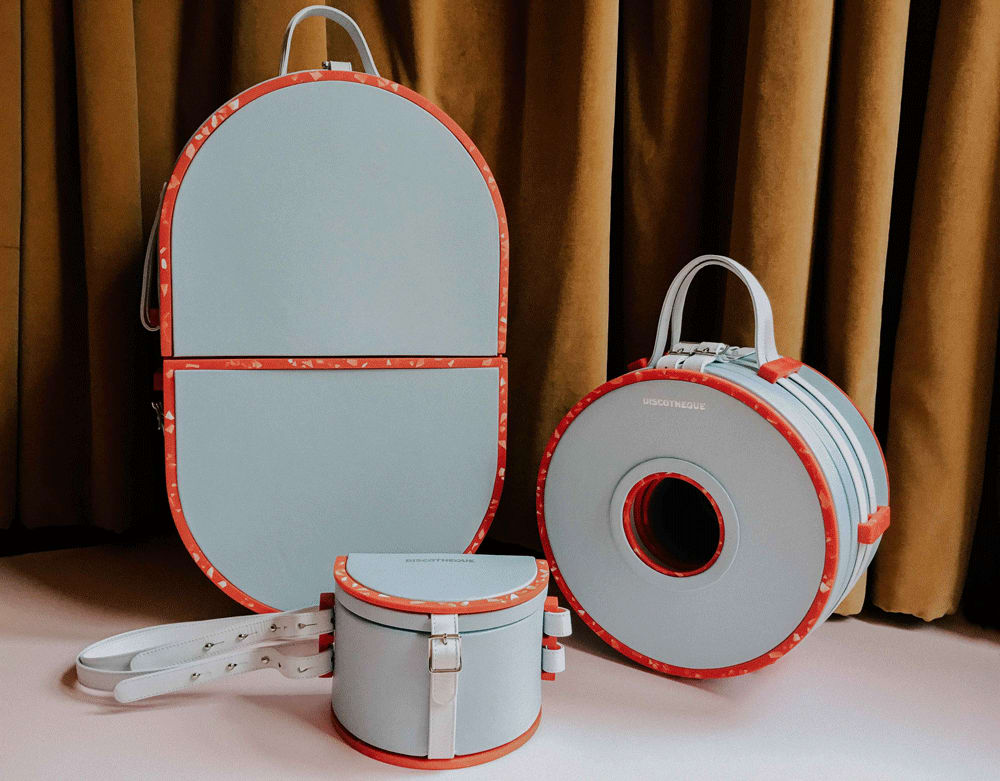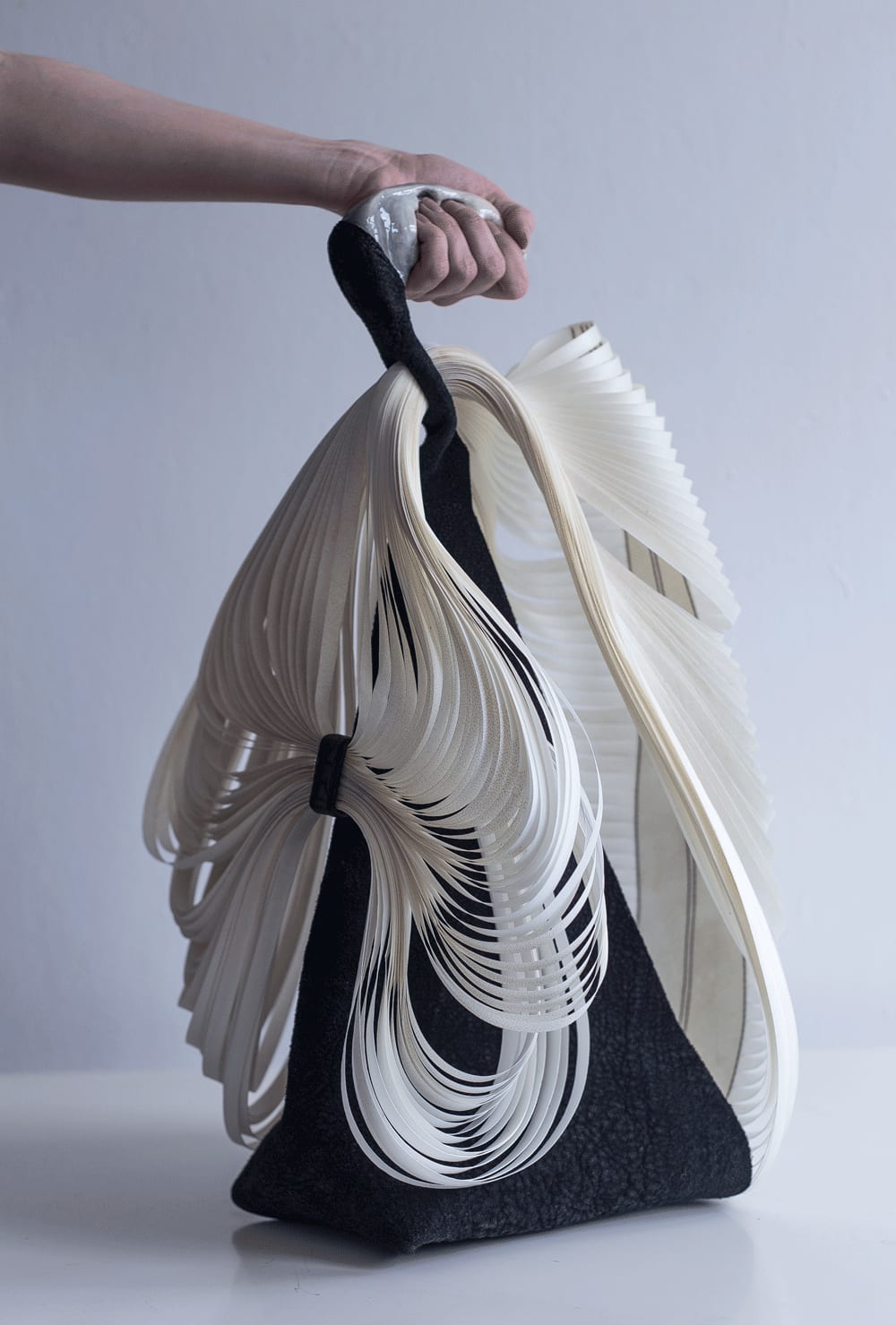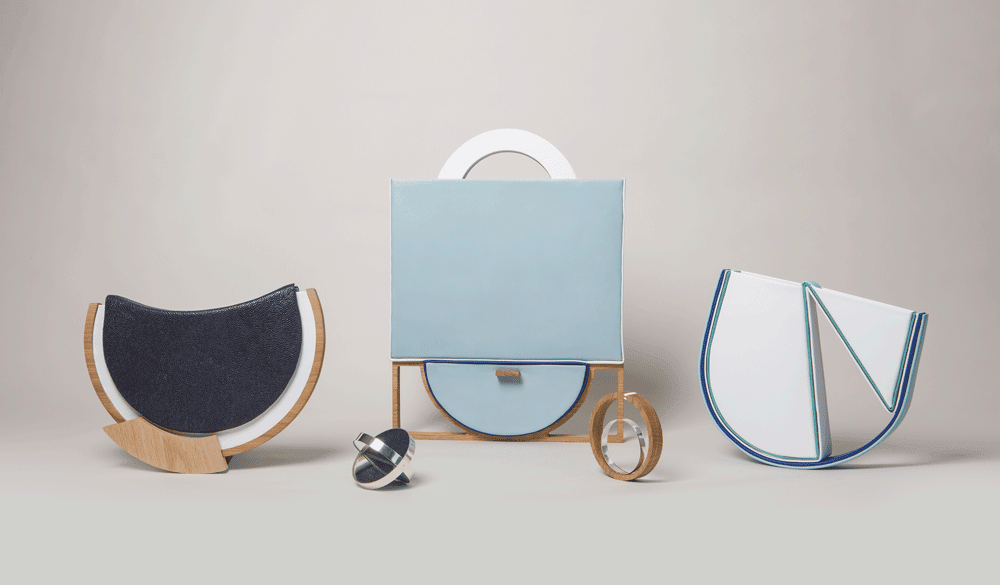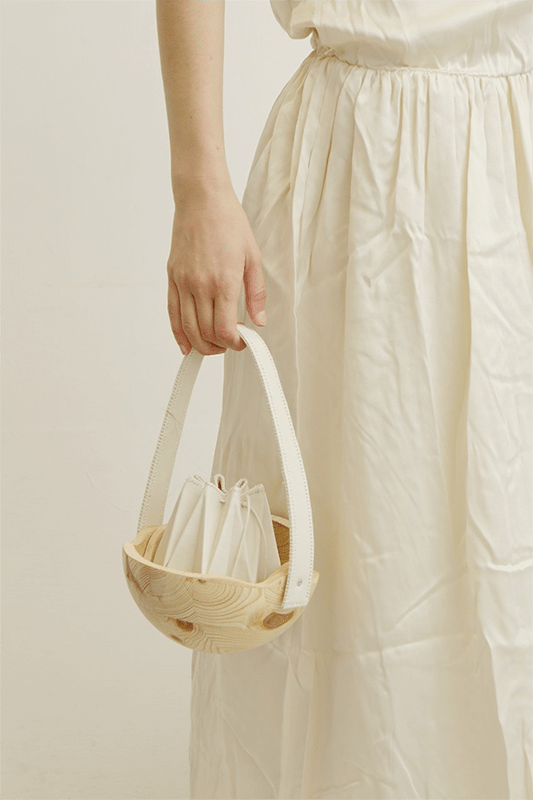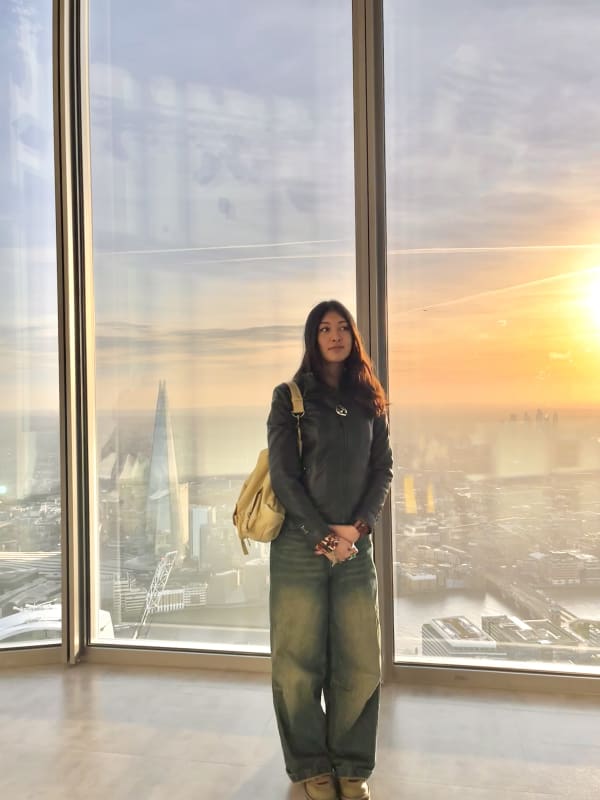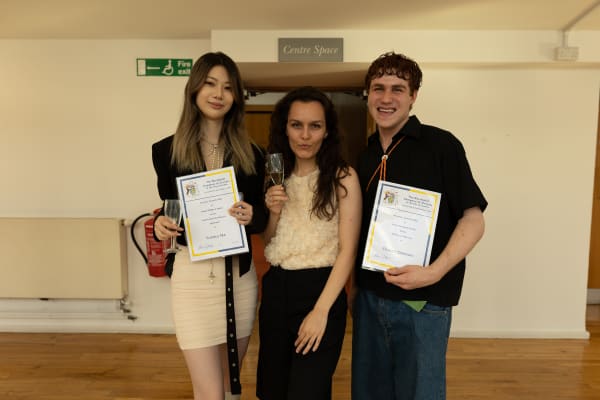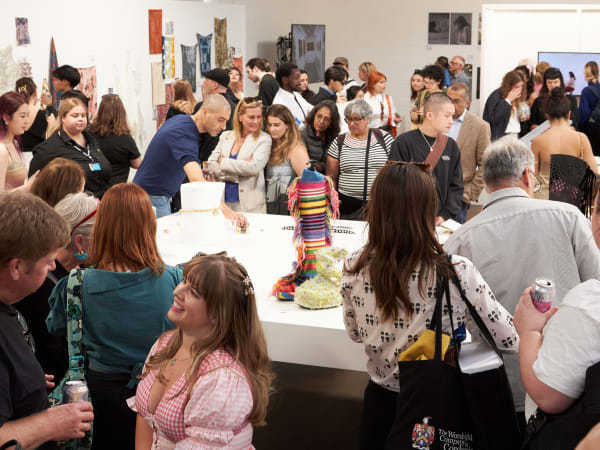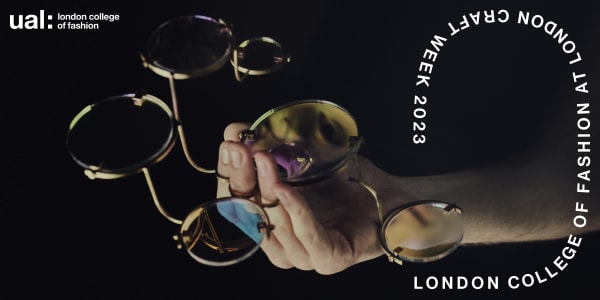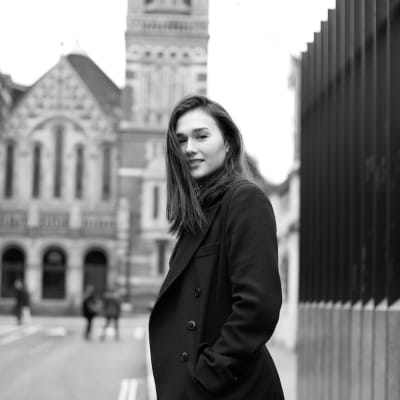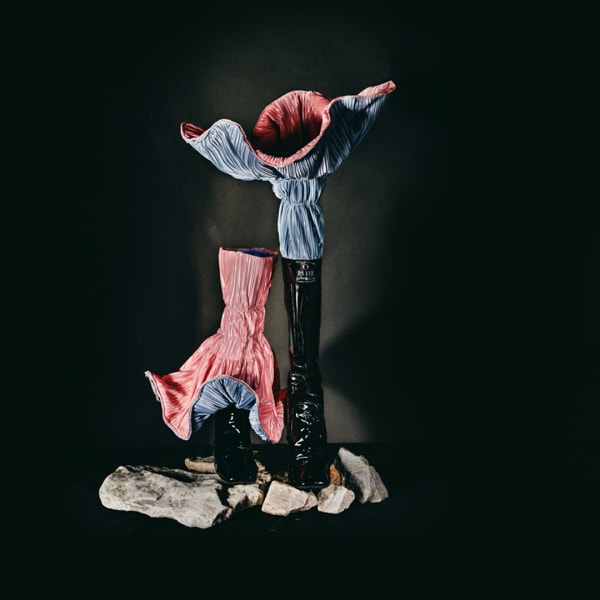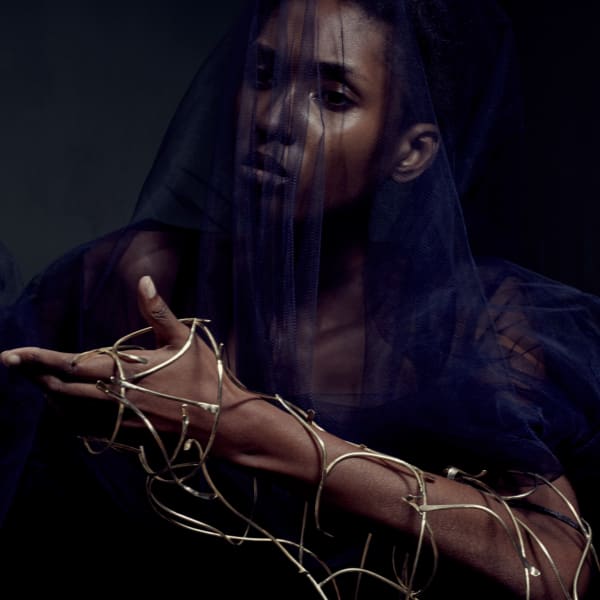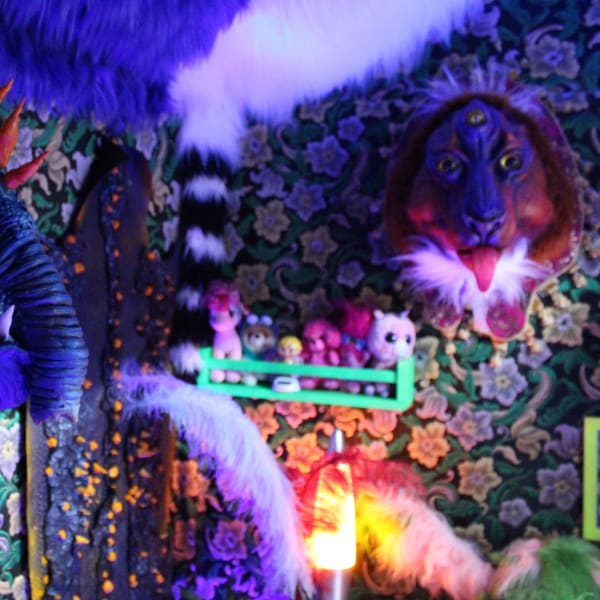Course units
Stage 1
In Stage 1 you are required to complete 120 credits at level 4 in order to progress to Stage 2.
- Introduction to Fashion Bags and Accessories (20 credits); This is an introductory unit where you’ll engage with research, design, and 3D principles, are familiarised with critical thinking and evaluative skills and engagement with academic writing. This unit is an important foundation to further build on.
- Accessories Design and Technologies (40 credits); This unit will introduce you to essential design and technical skills required for the development and production of accessories. Through workshop demonstrations and practice you will learn about the materials and processes involved, along with specialised technical leather core skills, pattern cutting techniques, construction methods, production techniques and prototyping skills that are necessary to fully understand the design and prototyping process and become a successful product developer. You will then consider how these processes can be applied to your design ideas. You will be introduced to health and safety requirements within the workshop areas. Change-making themes around race, climate, ethics, equity and inclusion will be explored. You will reflect on the role of the designer in the current context of Climate Emergency and start developing your own critical thinking.
- Creative Identity (40 credits); This unit explores the creative design process and your identity as a designer in relation to your own cultural and societal values. You will be introduced to a series of technical, design and theoretical skills that an accessories designer must work through when developing new ideas. Research and inspiration are always the starting points within the design process. These will lead you on to initial ideas, design development and design finalisation focused on an end consumer. An important part of design is how you communicate your ideas to others and the overall presentation of your work. You will be introduced to team working. Change-making themes around race, climate, ethics, equity and inclusion will be explored. You will reflect on the role of the designer in the current context of Climate Emergency and further develop your own critical thinking.
- Fashion Cultures and Histories (20 credits); Fashion Cultures and Histories takes a philosophical and theoretical approach to the study of fashion and its role in representing and communicating identity. The unit assembles key theorisations and ways of thinking about fashion across its cultural, historical, social and political contexts. It will engage you in debate and analysis of fashion as a key marker of social and cultural change and a means of understanding the relationship between individuals and communities.
Stage 2
In Stage 2 you are required to complete 120 credits of which a minimum of 100 must be at level 5
- Professional Practice (40 credits); This unit introduces you to the global context of the fashion industry and the study of design and development for a specified market. It explores areas that will affect the development of a product, such as sustainable and ethical sourcing, costing and the environments in which the product will be consumed. This unit will further develop your critical thinking around design and technology for your specialist area and allow you to engage with industry relevant project briefs and challenges. Within this unit you will design a range of accessories for an identified market/purpose, explore the product development process and make a final prototype.
- Critical Issues in Fashion Research (20 credits); This unit will introduce you to a range of urgent and emerging debates within fashion research and will expand your critical understanding of fashion in a global context. You will be introduced to a range of approaches to researching fashion across its social, historical, political and cultural contexts, building on themes studied in the first-year unit Fashion Cultures and Histories. The seminars will involve you in collaborative research around current and emerging cultural issues, and guide you through approaches to researching and writing about fashion in an academic context. The unit will support you in developing your own independent research path and interests.
- Future Crafts (20 credits); This unit will develop your critical thinking; broaden your professional skills set and support your innovative individual response to the brief. Creative, strategic and practical skills will be developed through traditional and contemporary techniques in order to communicate strong visual and written responses. You will use critical judgement and current debate to inform and develop appropriate outcomes and evaluate and justify your solutions. You will engage with 3D or other technological design processes and prototyping of accessories using sustainable materials.
- Industry Project (40 credits); As an undergraduate you will consolidate your understanding of research methods in relation to industry-set challenges. Through undertaking a live or simulated industry brief your knowledge and professional understanding of the design and product development processes will be enhanced. This unit will support you in thinking differently, to fuse creative, practical and entrepreneurial skills within an industrial context. This unit will further nurture critical thinking and understanding of issues around human equity, social and racial justice. Within this unit you will engage with the design process including research, initial designs, design development up to final prototype making. You will evaluate your process and demonstrate problem solving skills. Your design work will be supported by a rational to contextualise and justify your design proposal of your collection.
Optional Diploma Year
Industry DIPS
This optional diploma can be taken between years 2 and 3. With support from your tutors, you’ll undertake an industry placement for a minimum of 100 days/20 weeks. As well as developing industry skills, you’ll gain an additional qualification upon successful completion.
Enterprise DIPS
This optional diploma can be taken between years 2 and 3. With support from your tutors, you’ll undertake an enterprise placement year where you will explore a business idea from proposal to minimal viable product (MVP). As well as developing enterprise skills, you’ll gain an additional qualification upon successful completion.
CCI Creative Computing
Between years 2 and 3, you can undertake the year-long Diploma in Creative Computing. This will develop your skills in creative computing alongside your degree. After successfully completing the diploma and your undergraduate degree, you’ll graduate with an enhanced degree: BA (Hons) Cordwainers Fashion Bags and Accessories (with Creative Computing).
CCI Apple Diploma
Between years 2 and 3, you can undertake the year-long Diploma in Apple Development. This will give you an opportunity to become an accredited apple developer alongside your degree. After successfully completing the diploma and your undergraduate degree, you’ll graduate with an enhanced degree: BA (Hons) Cordwainers Fashion Bags and Accessories (with Apple Development).
Stage 3
In Stage 3 you are required to complete 120 credits at level 6.
- Concept Vision (40 credits); This unit will provide a platform from which you will be able to formulate an innovative and enterprising, self-initiated concept and strategy to underpin the rest of your final year of study. This will enable you to embody knowledge, creative thinking and experience gained and present a major piece of product design and development work. It should be intellectually explored, viable for your chosen market and informed by appropriate theory, ethical debate, research and development. In relation to your own personal values and your role as a designer within the fashion industry change-making themes should be explored and tackled to provide solutions in response to the current context of Climate Emergency. Themes around race, climate, ethics, equity and inclusion in line with your career aspirations should be explored.
- Contextualising Practice (20 credits); Contextualising Your Practice allows you to build on your historical and theoretical understanding of fashion through a research-led extended essay. You will identify a topic, related to your field of practice, that you will investigate through an independent research project, underpinned with cultural and critical theory. It is an opportunity for you to undertake a substantial piece of structured research that examines fashion practice in context and it will build on the critical debates and concerns raised through your course.
- Concept Realisation (60 credits); This unit will enable you to identify, research and develop your personal vision via an individually negotiated project. You will continue to develop design ideas from your Concept Vision outcomes. You will broaden and deepen your research, design and development. Your research and experimentation will result in the production of innovative and creative fully realised prototypes of your proposed collection of accessories. This exploration should evidence full engagement with your responsibilities as a designer/product developer, informed by current debates. You will present your work using appropriate professional techniques.
You’ll be entitled to a tutorial package that consists of:
- one induction tutorial (group or one to one);
- one group and/or individual tutorial per block for the duration for your course of study at LCF;
- group tutorials as required;
- an appropriate level of confidentiality.
